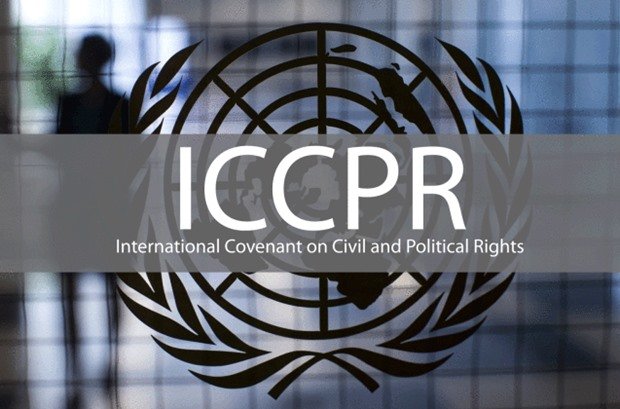Whether Pakistani reservations on International Covenant on Civil and Political Rights (ICCPR) in compliance with International Law?
PAKISTAN’S RESERVATIONS TO THE INTERNATIONAL COVENANT ON CIVIL AND POLITICAL RIGHTS (ICCPR)

Introduction:
The Government of Pakistan agreed to the UN’s International Covenant on Civil and Political Rights (ICCPR) on 23rd June 2010. However, while doing so, the Government entered numerous reservations to the Covenant. The reservations refer to key provisions of the ICCPR, such as freedom of opinion, right to life and more importantly for the country’s democratic development such as elections and participation in public affairs. Pakistan’s reservation to the ICCRP are not compatible with the international law. Reservations must be transparent and specific under international law. While Pakistan’s reservations do not pass this test and may be considered as unlawful and inapplicable.Pakistan’s reservation to ICCPR:
The Government of Pakistan ratified the ICCPR on 23rd June 2010. Their reservations were related to Article 3,6,7,12,13,18,19,25 and 40 of the Covenant.
Article 3 of the ICCPR states that the state must ensure equal rights of men and women to the enjoyment of all civil and political rights set forth in this covenant. Article 6 relates to right to life, Article 7 relates to torture and cruel punishment, Article 12 is about liberty of movement and Article 13 is about expulsion of aliens from state. Article 18 is about freedom of thought, conscience and religion, Article 19 relates to freedom of opinion and Article 25 of the ICCRP relates to participation in public affairs, right to vote etc.
Pakistan made reservation related to article 3,6,7,18 and 19 that these articles shall be applied to the extent as long as they are not repugnant to the provisions of the Constitution of Pakistan and the Sharia laws. Similarly, in Article 25 it stated that’ The Islamic republic of Pakistan declares that the provisions of Article 25 shall be so applied to the extent that they are not repugnant to the Provisions of the Constitution of Pakistan’.
In relation to Article 40, Pakistan stated that it does not recognize the competence of the Committee provided for in Article 40 of the covenant. This article specifies reporting requirements to the United Nations (UN) Human Rights Committee.Pakistan’s reservations compliance with International law:
As mentioned above, Pakistan’s reservations do not comply with international law due to following reasons:According to Article 19 of Vienna Convention on the Law of treaties:
(a) prohibited by the treaty;
(b) the treaty provides that only specified reservations, which do not include the reservation in question, may be made;
(c) in cases not failing under subparagraphs (a) and (b), the reservation is incompatible with the object and purpose of the treaty.
According to General comment 24, reservations are incompatible with the object and purpose of the ICCPR if :
(a) a reservation is unspecific and non-transparent.
(b) a reservation makes ICCPR obligations subject to change in domestic law.
(c) it removes an autonomous meaning to Covenant obligations.